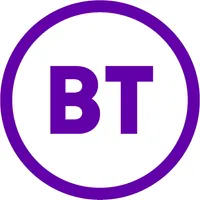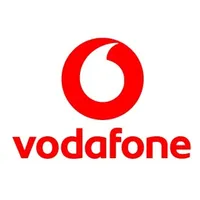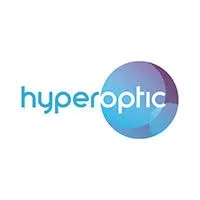Ultrafast broadband: What is it and what are the best deals currently available?
Ultrafast and Gigabit broadband with ISPs like BT and Virgin

Sign up for breaking news, reviews, opinion, top tech deals, and more.
You are now subscribed
Your newsletter sign-up was successful
Ultrafast broadband deals seem to be the new frontier for internet. Long gone are the slow, shrill days of dial-up, with our technological needs now demanding rapid download speeds, which ISPs are falling over each other to deliver.
So how fast is Ultrafast? It can achieve a download speed of anywhere between 100Mb per second and a dizzying 1Gb (1000 Mb). It’s quite a leap from Superfast’s upper range of 67Mb with an FTTC (Fibre to the Cabinet) setup, where fibre cables run as far as the street cabinet but not on to the home.
Just under 10% of UK homes are currently able to enjoy Ultrafast broadband deals, but this should rise to 34% by 2025 thanks to Openreach’s G.fast technology and the ongoing upgrade of copper cable connections with Full Fibre.
As homes become internet-intensive hubs for smart-devices, virtual assistants and other networked gadgets, Ultrafast promises an uninterrupted, effortless online experience. Even for large households simultaneously streaming 4K movies and gaming, an Ultrafast will erase any bitter memories of buffering.
- Compare the best broadband and TV deals available
Who offers Ultrafast broadband deals?
With Openreach slowly rolling out FTTP infrastructure and aiming to reach fifteen million homes by 2025, increasing numbers of ISPs are jumping on the Ultrafast broadband bandwagon.
If you’re looking to upgrade your online life and make day-long downloads a thing of the past, you’ll want to explore the Ultrafast broadband packages currently available. Not only are national companies like Sky, Vodafone, Virgin and BT on board, but more localised operations like Hyperoptic are also jumping on the Ultrafast broadband deals band-wagon.
Ultrafast broadband from BT:
Read moreRead less▼
BT Ultrafast Fibre 100 | 24 months | Avg. speed 145Mb | Weekend calls | £9.99 delivery | £39.99pm
BT has two Ultrafast deals but the cheaper of the two is its Fibre 100 option. This rewards you with speeds averaging 145Mb at a price of £39.99. You can upgrade to BT's Ultrafast Fibre 250 with speeds averaging 300Mb for an extra £10 a month.
Ultrafast broadband from Virgin:
Virgin isn’t part of Openreach and use their own coaxial cables instead of the existing copper ones, meaning they’re already able to deliver ultrafast speeds. They have three broadband plans available:
Read moreRead less▼
Virgin M100 broadband | 12 months | Avg. speed 108Mb | Weekend calls | £35 delivery | £27pm
Virgin's cheapest option the - M100 lands you with 108Mb average speeds at a price of just £27 a month, putting it in a similar price bracket to Vodafone below. You can upgrade to Virgin's M200 package with speeds averaging 213Mb or its M350 option at 362Mb.
Read moreRead less▼
Virgin Ultimate Oomph bundle | 12 months | Avg. speed 516Mb | Weekend calls | £35 delivery | £89pm
Virgin's Ultimate Oomph Bundle is about as all out as you can go with broadband deals and it gets you access to Virgin's increased Ultrafast broadband with average speeds of 516Mb. Take a deep breath because there's a lot on offer here! You're getting anytime calls, speeds averaging an unbelievable 516Mb, over 260 channels including Sky Sports HD, Sky Cinema HD and BT Sport 4K and an unlimited data SIM only deal.
Ultrafast broadband from Vodafone:
Despite terming their products “gigafast”, only their 900 Mb option is close to delivering download speeds of 1 Gb (1000 Mb) per second. Regardless of the misleading marketing, Vodafone offer some of the quickest and best value broadband around:
Read moreRead less▼
Vodafone Gigafast Broadband 200 | 18 months | Avg. speed 200Mb | Weekend calls | FREE delivery | £28 a month
Vodafone has one of the cheapest Ultrafast packages around, coming in at just £28 a month while still landing you speeds averaging 200Mb.An upgrade to Vodafone's Gigafast 500 with speeds averaging 500Mb will cost £38 a month and its fastest Gigafast 900 with, you guessed it, speeds averaging 900Mb costs £48 a month.
Ultrafast broadband from Sky:
Read moreRead less▼
Sky Broadband Ultrafast | 18 months | Avg. speed 145Mb | Weekend calls | £9.95 delivery | £39pm
Sky has kept its range simple, just offering this one package. The speeds average 145Mb but you're paying £39 a month to get that. If you find your speeds dropping below the guarantee of 100Mb for three days straight you can cancel with no additional costs.
Ultrafast broadband from Hyperoptic:
Its speeds are some of the best commercially available, ranging from Ultrafast to Hyperfast and peaking at Gigabit broadband levels. Its price plans are also dreamily low.
The downside? Hyperoptic isn’t a nationwide operation – yet – and only serves large blocks of flats and business units in localised areas. It’s currently available in parts of 39 UK towns and cities such as London, Birmingham and Manchester.
Read moreRead less▼
Hyperoptic Superfast Broadband | 12 months | Avg. speed 150Mb | Weekend calls | FREE delivery | £26pm
Like Vodafone and Virgin, Hyperoptic has some of the cheapest Ultrafast plans around. It's cheapest comes at £26 a month for speeds averaging 150Mb. Upgrade to Ultrafast for £38 a month with speeds averaging 500Mb. Or for one of the fastest broadband plans around, £45 a month for speeds averaging 900Mb.
What is Ultrafast broadband and how does it work?
Where an ADSL connection consists of copper cables, which struggle to transfer data over long distances, and FTTC or fibre broadband use superior fibre optic cable – but only from the telephone exchange to the street cabinet – Ultrafast improves download and upload speeds by implementing G.fast and FTTP technology.
FTTP or ‘Fibre to the Premises’ entirely replaces copper cables with fibre optic ones, which can transfer data close to the speed of light with barely any signal interference.
These run from the telephone exchange to the street cabinet and directly on to the home, resulting in much better connectivity than you’d otherwise experience. Alternatively, Opensource’s G.fast technology utilises a special pod that helps boost the signal of the remaining length of copper cable, making it work as efficiently as a fibre optic one.
Although Ultrafast Broadband is marketed differently from ISP to ISP – often interchangeable with terms like Full Fibre, FTTP, Superfast and Gigafast (the latter somewhat misleadingly) – its defining feature is a download speed in excess of 100 Mb a second.
It’s great for anyone who wants to avoid lag and the peril of ‘ping’ in live-gaming scenarios, as well as for lovers of 4K movies, which require about eight-times more data than Standard Definition films. Also, if you think of yourself as king or queen of the live-stream, you’ll benefit from an Ultrafast fibre broadband deal with its superior upload speeds.
What is Gigabit broadband?
The very best Ultrafast broadband plan demonstrates the potential of Full Fibre or FTTP to reach and exceed 1 Gb per second. Hyperoptic has its Hyperfast option – essentially being Gigabit broadband – and there are numerous other companies providing ever-incredible speeds to very localised areas.
TalkTalk has its UFO plan, a futuristic acronym for Ultra Fibre Optic, but presently limited to areas of York, while KC Communications and Gigler serve rural communities often held back by poor infrastructure and connectivity.
BT has recently announced that it will be launching Gigabit pacages very soon, with a date sometime in April. According to BT, it will be 25x faster than its Superfast Fibre package with speeds averaging 50Mb.
Gigabit broadband will allow large files to be downloaded in seconds and be a boon for small and medium-sized businesses. But, with whispers of even-quicker, terabyte-level speeds increasingly audible, ISPs might want to withhold a few choice synonyms for “really really really fast” for the time being.
Sign up for breaking news, reviews, opinion, top tech deals, and more.

Daniel Pateman is a freelance writer, producing articles across the cultural spectrum for magazines like Aesthetica, Photomonitor, The Brooklyn Rail and This is Tomorrow. He also provides text-writing services to individual curators and artists worldwide, and has had work published internationally. His favourite film genre is horror (bring on Scream 5!) and he never tires of listening to Absolute 80s on the radio.




